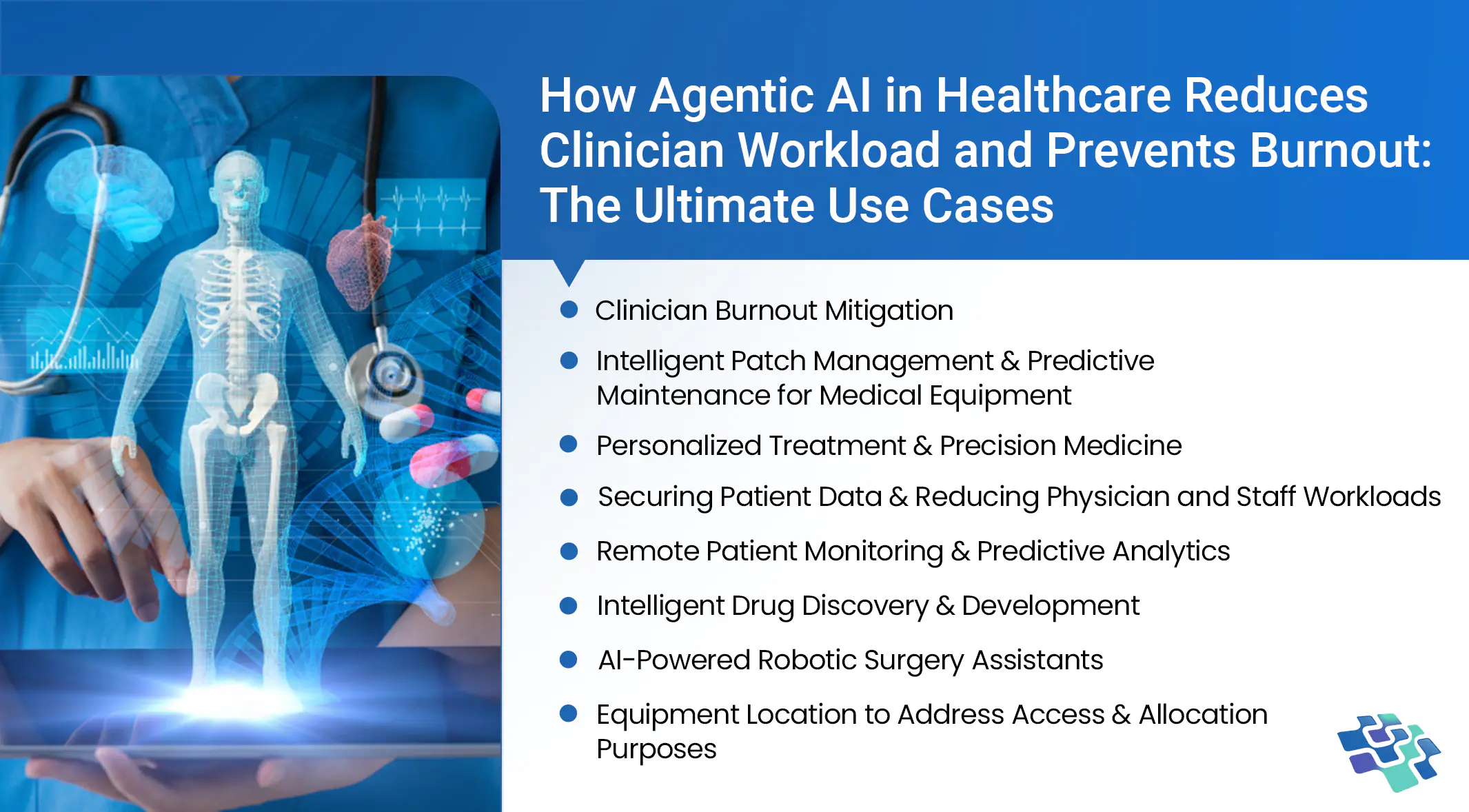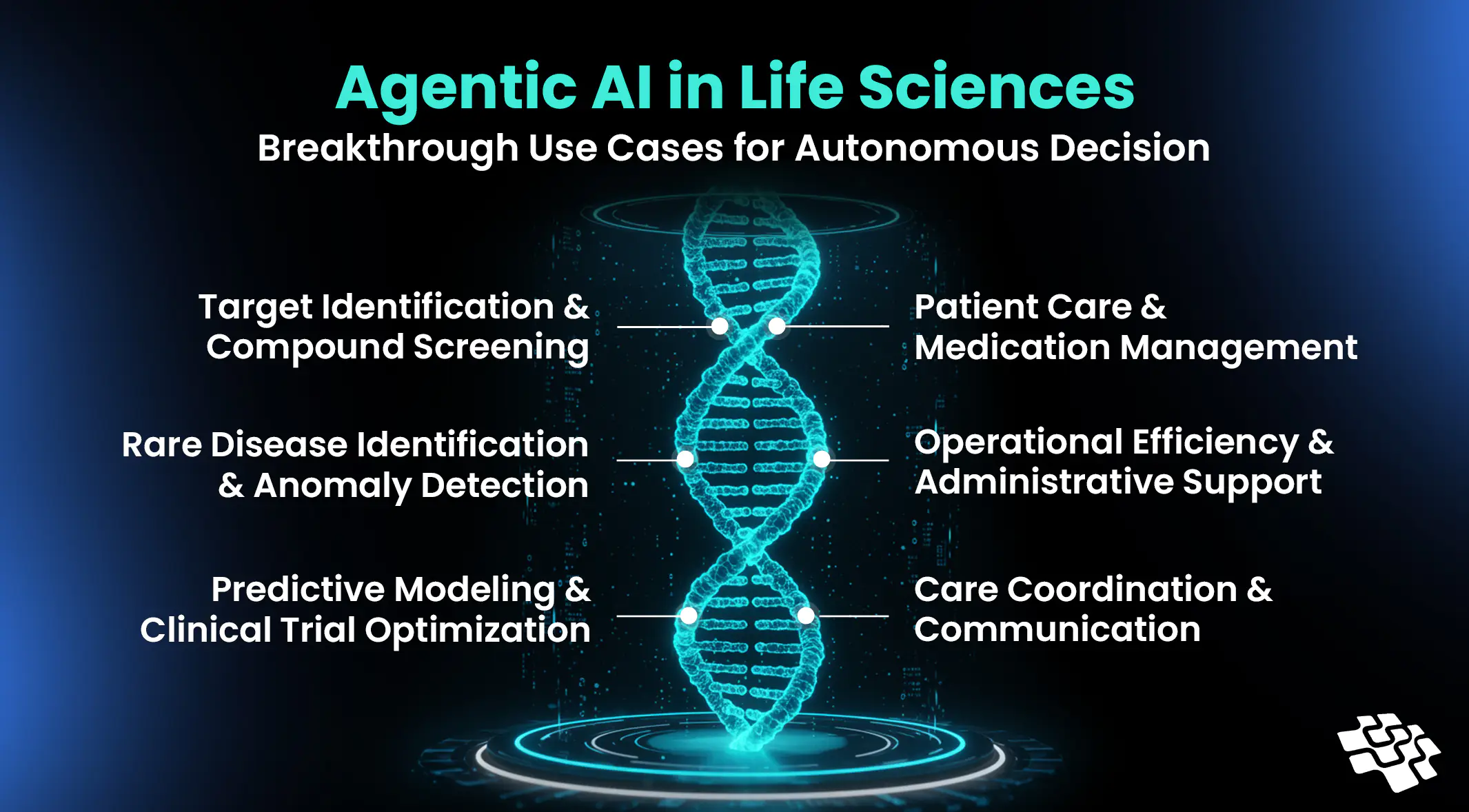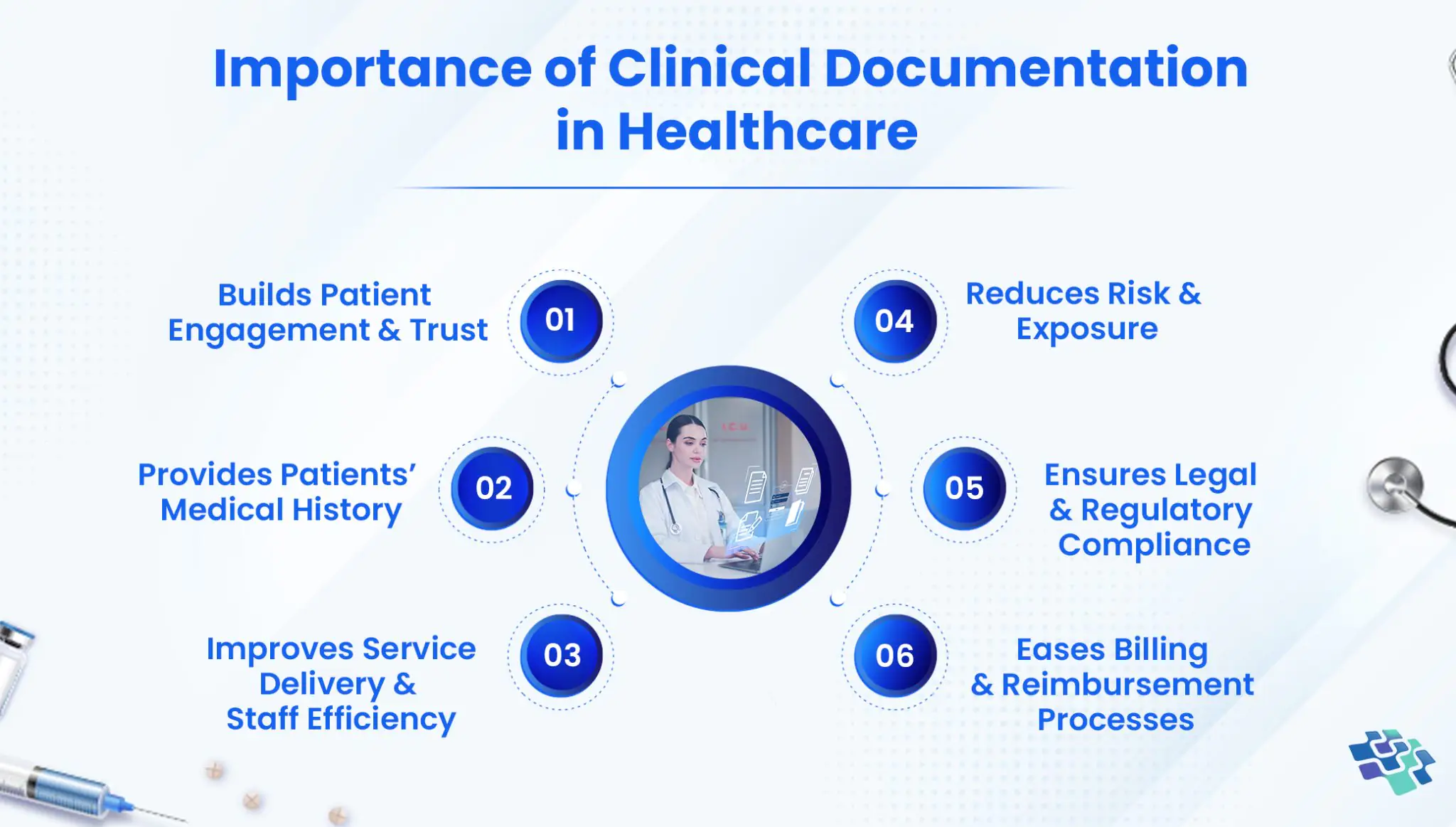Agentic AI in Healthcare Staffing: From Buzzword to Breakthrough in Reducing Clinician Burnout
While conventional staffing methods persist, they struggle to maintain efficiency or protect the balance essential to quality care, affecting both providers and patients. AI has the potential to transform workforce management into a proactive, data-driven benefit for healthcare providers.

Combat Clinician Burnout Using AI Scheduling Tools That Balance Workloads and Support Staff Well-Being

“Globally, the needs-based shortage of healthcare workers was estimated to be approximately 18 million in 2013. This shortage is driven by a broad set of factors related to chronic underinvestment in health workforce education, recruitment, and labor market constraints. Analytics coupled with AI can potentially play an important role in the data mining of health records, thereby becoming an effective technique to guide healthcare decision-making.”– National Library of Medicine
Why Now is the Time to Adopt Agentic AI in Healthcare Staffing
The adoption of new technologies is often sluggish in the healthcare sector. Leaders who are reluctant to embrace AI could face the following cultural and financial risks:
- Persistent overspending on unnecessary hiring and contract labor expenses
- A workforce shortage that never slows down
- Increased rates of ethical damage or burnout among clinicians
Predictive staffing is an excellent initial use case for organizations that wish to experiment with agentic AI but lack the risk of tolerance to try it for patients or diagnostics. AI integration in this field carries less danger from an ethical and data privacy perspective since predictive staffing models do not require sensitive patient data.
Remember that the quality of the model depends on the data it was trained on, as organizations prepare to deploy agentic AI for predictive staffing. It’s critical to ensure that the leadership is aware of the potential and constraints of AI, that have considered the sorts of data and IT infrastructure required, and that the staff members are aware that the model is not meant to replace people or positions.
The Healthcare Staffing Challenges: Why It Persists and How Technology Can Fix It
Healthcare facilities deal with a complex web of issues every day behind every filled shift. Staffing is much more than just a logistical task; it’s a high-stakes balancing act that involves everything from stringent compliance regulations and erratic staffing demands to upholding high standards of care and combating operational inefficiencies.
These issues highlight the pressing need for more intelligent, flexible solutions as workforce demands continue to rise. Here are some reasons why healthcare staffing is so challenging and why innovation cannot wait.
- Demand & Supply Imbalances: The shifting need for healthcare workers is one of the most urgent issues. Resources may be strained by pandemics, seasonal illnesses, or unexpected patient increases. On the other hand, financial inefficiencies might result from overstaffing during slower times. Healthcare facilities find it difficult to quickly replace staff positions when there is an unexpected spike in demand. It takes regular juggling to balance this demand with the supply of nursing professionals.
- Complex Compliance Requirements: Filling open positions is only one aspect of healthcare staffing; another is making sure that each expert hired satisfies strict compliance requirements. Healthcare institutions must manage a complex web of rules, from certifications to training, to ensure that their employees are qualified and adhere to local, state, and federal standards. This exposes healthcare facilities to significant legal and financial concerns and makes it extremely difficult to fill unfilled positions.
- Operational Inefficiencies: Conventional staffing techniques, which depend on manual procedures, can be laborious and prone to mistakes. These operational inefficiencies, which range from screening applications to scheduling shifts, can result in staff stress, gaps in patient care, and higher operating expenses. In fact, because of the enormous administrative burden that nurses bear, healthcare facilities are already dealing with an extremely high turnover rate among nursing personnel.
Reinventing Workforce Models with Remote Healthcare Staffing
Healthcare providers’ operations are being altered by the rapid growth of remote healthcare personnel. These days, a lot of medical work can be completed online, including patient consultations, medical coding, and billing. Both healthcare workers and providers benefit from this change.
Large office premises are not necessary for providers when they use remote staffing. Additionally, it lowers expenses for office supplies and utilities. Healthcare providers can access a larger pool of talent through remote staffing.
Employees in remote healthcare roles have more flexibility. They can work from the comfort of their own homes. Increased job satisfaction may result from this flexibility, which also enhances work-life balance.
Healthcare workers can avoid long commutes by working remotely, which saves them time and lowers their stress levels. Apart from these benefits, remote staffing can improve the way healthcare providers react during emergencies.
Reducing Burnout & Cognitive Load with Agentic AI
Burnout poses a risk to both worker stability and the quality of healthcare. This problem can be immediately addressed by agentic AI in healthcare by relieving repetitive, cognitive-taxing, and routine jobs.
1. Reducing Administrative Load to Empower Clinicians
Documentation takes up between 35 to 50% of a clinician’s work. Physician-patient interactions are recorded and transcribed in real time by artificial intelligence systems like Ambient Clinical Intelligence and natural language processing.
This lessens cognitive tiredness and eliminates the necessity for charting after hours.
2. Protecting Staff Well-Being with Intelligent Shift Management
Agentic AI–driven scheduling solutions intelligently balance workloads by analyzing trends in shift patterns, call volumes, and patient acuity levels.
By continuously monitoring these factors, AI prevents overuse of critical healthcare staff, optimizes resource allocation, and promotes sustainable workforce management, reducing burnout and ensuring consistent, high-quality patient care delivery.
3. Enhanced Candidate Matching
AI’s capacity to enable improved applicant matching is one of its primary benefits in healthcare staffing. Conventional approaches frequently depend on subjective evaluations and keyword matching, which results in mismatches between candidates and roles.
Agentic AI algorithms in healthcare staffing, on the other hand, can determine which individuals are most suited for positions by analyzing a wide range of characteristics, such as abilities, experience, certifications, and cultural fit.
4. Monitoring Wellness & Engagement
To identify early indicators of burnout or disengagement, many healthcare organizations now use AI to examine email traffic, communication tone, calendar patterns, and staff survey data.
Agentic AI in healthcare staffing helps managers in improving employee well-being and retention by proactively spotting these tendencies and implementing timely interventions like task balance, wellness initiatives, or individualized managerial support.
Eliminate Manual Scheduling Errors Using Intelligent Automation to Optimize Shifts and Prevent Overstaffing
How Agentic AI in Healthcare Staffing is Solving the Workforce Shortage Crisis
Agentic AI in healthcare staffing is already transforming workforce management, not just a futuristic idea. It streamlines hiring, automates scheduling, and enhances staff productivity by intelligently matching talent to demand, improving efficiency and overall quality of patient care.
 1. AI-Powered Recruitment Platforms Streamline Candidate Selection
1. AI-Powered Recruitment Platforms Streamline Candidate Selection
Conventional staffing practices, such as reviewing applicants, setting up interviews, and verifying credentials, are infamously time-consuming. Applicant tracking systems (ATS) driven by agentic AI use machine learning and natural language processing to:
- Examine and prioritize resumes according to their qualifications, experience, and compatibility.
- Automatically schedule interviews and keep candidates informed with seamless AI-driven communication.
- Report on inconsistencies in credentials, making sure that industry rules are followed.
Businesses employ predictive analytics to assess candidates’ long-term success, which speeds up identifying the best fit for medical organizations.
2. Predictive AI Models Optimize Workforce Planning
Beyond hiring, Agentic AI in healthcare staffing enhances team efficiency and strategic workforce planning. It analyzes performance data, predicts staffing needs, and dynamically aligns resources, ensuring balanced workloads, reduced burnout, and optimal patient care across departments and care settings.
- Data-Driven Scheduling: Agentic AI uses trend analysis to create schedules that minimize overtime, lessen burnout, and avoid understaffing.
- Future-Focused Hiring: Agentic AI facilitates more proactive planning by spotting new demands like seasonal demand or local shortages.
- Skill Gap Insights: Agentic AI in healthcare staffing can identify underrepresented roles or credentials, directing hiring and training efforts.
By continuously learning from real-time operations, it empowers healthcare leaders to make data-driven decisions that improve staff satisfaction, retention, and overall organizational performance.
3. AI Medical Scribes Automate Clinical Documentation
Physician burnout is exacerbated by the time-consuming nature of medical documentation, which frequently reduces important in-person patient interactions. Outside of office hours, doctors’ complete paperwork for over two hours every day. Physicians soon get overburdened by this extra workload, which also causes stress and interferes with direct patient treatment.
Automated documentation driven by agentic AI presents a viable option. These technologies reduce the burden of paperwork by accurately transcribing doctor notes, updating patient information in real-time, and even predicting billing codes based on documentation.
According to a study on AI voice-enabled digital assistants, healthcare workers spend less time documenting, which frees up time and enables doctors to be more attentive and involved during patient visits. The outcome was a more intimate and productive interaction between the patient and the clinician, which enhanced the standard of care and the patient’s overall experience.
4. AI Co-Pilots Streamline Patient Triage and Resource Allocation
The healthcare system is still ill-prepared to deal with enormous demand, frequently failing to assign resources effectively and prioritize patients according to the severity of their ailments. The COVID-19 pandemic served as a clear illustration of this, with doctors finding it difficult to treat patients due to excessive demand. In many situations, ineffective patient triaging led to treatment delays and more stress on medical professionals.
Even in previously unheard-of circumstances, generative AI has transformed patient triage. These technologies successfully negotiate linguistic and cultural obstacles because of machine learning, accurately classifying patients as they join the healthcare system and guiding their treatment more effectively and securely. Agentic AI in healthcare staffing ensures that patients receive treatment on time and without needless delays by reducing the administrative burden.
5. AI Minimizes Hiring Bias and Ensures Compliance in Healthcare Staffing
Unconscious bias is one of the silent problems in hiring healthcare professionals. By anonymizing resumes and concentrating just on abilities and qualifications, Agentic AI technology helps get rid of this. Prominent medical staffing companies employ moral AI systems to ensure that each applicant is assessed equally, leading to a more inclusive and varied workforce.
When it comes to healthcare staffing, compliance is unavoidable. Every professional needs to have up-to-date background checks, licenses, and certifications. Medical staff outsourcing organizations may now automatically validate credentials through integrated databases because of agentic AI solutions, which reduces administrative errors and saves time.
Strengthen Compliance and Cut Risks with AI Tools Automating Credential Verification and Regulatory Processes
Opportunities for Agentic AI in Healthcare Staffing
There are several ways that agentic AI might enhance healthcare staffing. Important growing areas consist of:
- Predictive Analytics: Agentic AI predicts treatment success rates, illness outbreaks, and patient admissions. This facilitates efficient resource allocation in hospitals.
- Medical Research Acceleration: Agentic AI in healthcare staffing accelerates clinical trials and drug development by efficiently processing vast volumes of data.
- Telemedicine Expansion: AI-powered diagnostic tools and virtual assistants improve remote healthcare by increasing accessibility to medical advice.
AI-driven healthcare staffing innovation is receiving significant funding from both the public and private sectors. These opportunities can improve health care and alleviate workforce shortages with appropriate regulation and ethical AI practices.
Conclusion: The Future of Agentic AI Healthcare Staffing App Development
The shift from traditional scheduling to intelligent, AI-powered workforce management is rapidly transforming healthcare operations. Organizations investing in AI enabled healthcare analytics software services gain the ability to reduce staffing costs, improve clinician satisfaction, and elevate patient outcomes. With predictive scheduling, automated compliance checks, and real-time workforce optimization, digital health software development services are becoming the backbone of modern care delivery.
NextGen Invent’s digital health software development services are leading this evolution with proven capabilities in AI medical staffing solutions and enterprise-grade healthcare platforms. Their technology adapts to the unique challenges of hospitals, clinics, and large healthcare networks, ensuring actionable insights and operational agility.
Whether the goal is to build a new agentic AI staffing solution or enhance existing systems, NextGen Invent provides the innovation, scalability, and industry expertise required to drive measurable improvements in workforce efficiency and patient care.
Frequently Asked Questions About Agentic AI in Healthcare Staffing
Related Blogs

Agentic AI in Healthcare: Preventing Misdiagnosis and Reducing Diagnostic Delays
What if your healthcare system didn’t just respond to problems as they arose, but also foresaw them and took action before they even appeared? We’re headed in that direction with the introduction of agentic AI in healthcare.

From Trial Delays to Smart Decisions: How Agentic AI In Life Sciences Is Redefining Innovation
This blog will examine the primary challenges that pharmaceutical businesses must overcome to comprehend how agentic AI in Life Sciences industry might help them maximize efficiency...

Importance of Clinical Documentation in Healthcare
Enhancing clinical documentation quality facilitates better planning, service delivery, quality measures, and financial allocation, all of which contribute to better patient outcomes.
Stay In the Know
Get Latest updates and industry insights every month.
 1. AI-Powered Recruitment Platforms Streamline Candidate Selection
1. AI-Powered Recruitment Platforms Streamline Candidate Selection